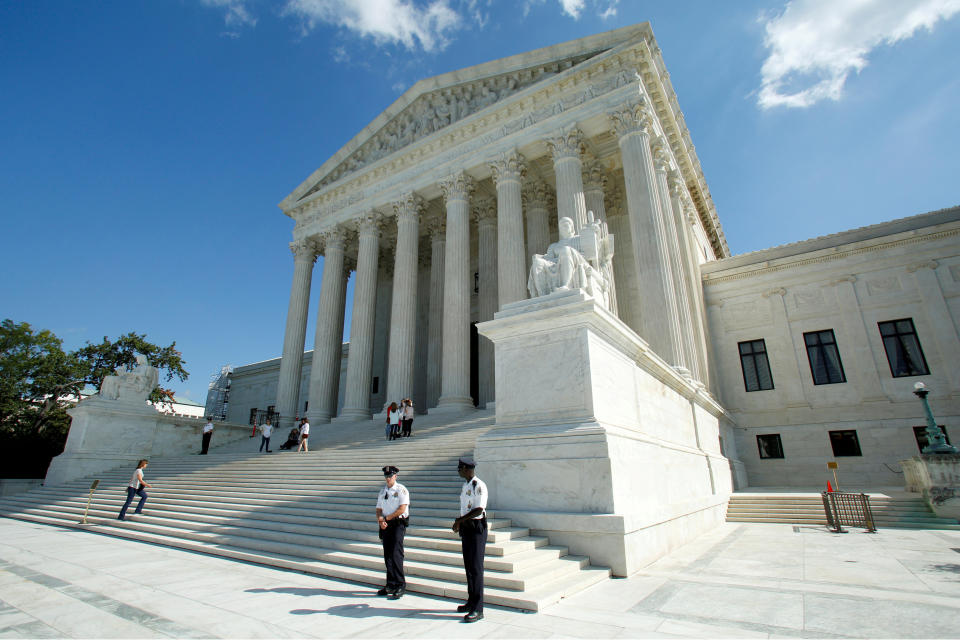Supreme Court limits rights of property owners
By Andrew Chung
WASHINGTON (Reuters) - The U.S. Supreme Court on Friday narrowed the rights of property owners in disputes with governments and laid out a formula for determining when landowners are owed compensation in a case involving a vacant lot in Wisconsin on the picturesque St. Croix River.
The court decided that government officials can combine separate parcels of private land in determining whether public officials have effectively taken private property through zoning laws and must pay compensation. The ruling could make it harder for property owners to prove compensation claims.
The justices, in the 5-3 ruling written by conservative Justice Anthony Kennedy and joined by the court's four liberals, upheld the use of zoning regulations by Wisconsin to prevent members of the Murr family from selling the vacant lot because the four siblings also owned an adjoining parcel of land.
The ruling set out a multi-factor test for courts to use to determine when a property taking requiring compensation to an owner has occurred, weighing how land is divided, its physical relationship to the surrounding environment, and the value of the land.
"This is an unfortunate decision for the Murrs, and all property owners," said John Groen, executive vice president and general counsel of the Pacific Legal Foundation, the conservative legal group that represented the family.
Watch news, TV and more Yahoo View, available on iOS and Android.
The state's attorney general, Republican Brad Schimel, called the ruling a "victory for the rule of law in Wisconsin."
State and local governments nationwide are grappling with ways to manage urban sprawl, provide services to residents and protect the environment, often by limiting the use of private property and leading to litigation by landowners.
Courts have recognized that in some cases, regulation can go so far as to deprive the owner of the value of their property, requiring compensation by the government. The legal issue behind the Murr family's case is how courts should make that call.
The dispute began in 2004 when the four Murr siblings, who own two adjacent parcels of land on the St. Croix River in Troy, Wisconsin, wanted to sell an empty lot purchased by their late parents decades ago as a family investment, hoping to fund repairs to their family cabin on the adjacent parcel.
Citing zoning regulations, county officials told them it was too small to develop and they would have to sell it with the adjacent lot.
The Murrs sued, alleging that the government had effectively taken the land without compensation. Without the ability to sell or develop the lot, it had been rendered economically useless, they said.
A Wisconsin appeals court sided with the state and local county in 2014, saying officials had not deprived the family of their property because both lots were contiguous and could be sold or developed together.
The family appealed to the Supreme Court. Their position was supported by various agricultural, real estate and business groups, which argued that the Wisconsin court decision made it more difficult to prove the government unfairly deprived them of their land.
Supported by the Trump administration, Wisconsin told the justices that for conservation and other reasons under state law, adjacent lots that are separately too small will be merged if they come under common ownership.
Given the test laid out in the ruling, Kennedy said, the Murrs' property "should be evaluated as a single parcel." Objecting to the test, Chief Justice John Roberts filed a dissenting opinion.
Justice Neil Gorsuch, who joined the court after the case was argued, did not participate in Friday's decision.
(Reporting by Andrew Chung; Editing by Will Dunham)


